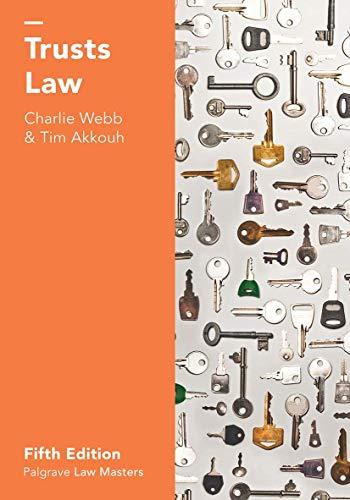Answered step by step
Verified Expert Solution
Question
1 Approved Answer
Criminal Law Ch 5 Know that defendants aren't criminally liable if their actions were justified or excused under the circumstances and understand how the affirmative
Criminal Law
Ch 5
- Know that defendants aren't criminally liable if their actions were justified or excused under the circumstances and understand how the affirmative defenses operate in justified and excused conduct.
- Understand that self-defense limits the use of deadly force to those who reasonably believe that they're faced with the choice to kill or be killed right now.
- Know and understand the four elements of self-defense.
- Understand the retreat rule and its historic transformation that led to the stand-your- ground rule.
- Know and understand the exceptions to the retreat rule, and to appreciate their impact on self-defense in cases of domestic violence.
- Know and appreciate how self-defense has been expanded to include the defense of others, the home, and property.
- Appreciate how the new "Castle Laws" are drastically transforming the law of self- defense, and to understand their application to self-defense cases.
- Know that the choice-of-evils defense justifies the commission of a lesser crime to avoid an imminent threat of harm from a greater evil.
- Know that the defense of consent is a justification defense based on the high value placed on individual autonomy in a free society.
Ch 6
- Understand that defendants who plead an excuse defense admit what they did was wrong but claim that, under the circumstances, they were not responsible for their actions.
- Appreciate the long history of the insanity defense, and know the popular myths and empirical realities surrounding the insanity defense.
- Understand the difference between insanity and competency when proving the affirmative defense of insanity.
- Know the four different tests of insanity and which elements of mental capacity, reason, and/or will form the basis of each test.
- Understand the difference between diminished capacity and diminished responsibility and appreciate how they apply only to homicide.
- Understand how the law handles the excuse of age and that juvenile court judges can use their discretion to transfer a juvenile to adult criminal court.
- Know the four elements of duress and appreciate the problem with blaming people who are forced to commit crimes.
- Understand that voluntary intoxication is no excuse for committing a crime but involuntary intoxication is.
- Understand that entrapment is used in all societies even though it violates a basic purpose of government in free societies: to prevent crime rather than encourage it.
- Understand why, despite their criticisms, syndrome excuses are, and should be, taken seriously.
Step by Step Solution
There are 3 Steps involved in it
Step: 1

Get Instant Access to Expert-Tailored Solutions
See step-by-step solutions with expert insights and AI powered tools for academic success
Step: 2

Step: 3

Ace Your Homework with AI
Get the answers you need in no time with our AI-driven, step-by-step assistance
Get Started


